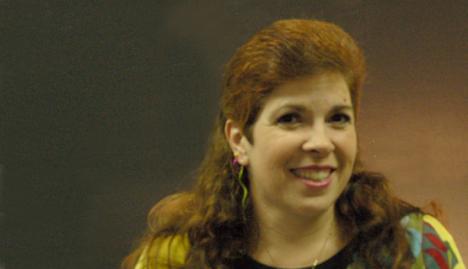Welcome (back) to Loyola. Last semester wasn’t exactly what you had planned; it wasn’t what any of us had planned. You have come back to a Loyola and a New Orleans that is not the same place you left.
The city in particular now presents new challenges and new opportunities. So what are you going to do? How are you going to be part of the resurrection of the city and the university?
Maybe you have just arrived, maybe you are coming back for your second, third or last year – in any of these cases, it is vital for you to think about why you are here, what you want to get out of your undergraduate education, and where you want to be after you graduate from Loyola University New Orleans.
One hopes that you have done your best work in your classes, but equally important are the range of opportunities that this Jesuit university and this city offer for students to challenge themselves as leaders, as volunteers, as individuals committed to others.
Not only should you take risks in the classroom, but you should also take risks outside the classroom by getting involved in student government, in LUCAP, in Big Brothers-Big Sisters, in any of the organizations that ask you to think about someone else, that ask you to leave that comfort zone and try something you are not sure you can do.
It isn’t that the grades don’t matter – they do. Your grades are a reflection of your ability to meet the demands placed before you and of your understanding that learning is your responsibility. Your course work demonstrates your commitment to intellectual exploration and diversity, and your grades are evidence that you have taken your education seriously.
Working with and for others, however, gives your education a context that is not as much about what you have achieved, as it is about what you can do with what you have learned, about who you are and about who you want to be. And the more that you have to articulate the “why” of your choices – educational, volunteer, leadership – the more you have to understand those very choices.
So what does this have to do with applying for things like the Rhodes, the Marshall, the Goldwater, the Coro, the Truman, the Soros, the Javits, the Jack Kent Cooke, the NIH scholarships and all of the other prestigious, competitive awards these various foundations and organizations offer? All of these awards, which can finance your undergraduate and your post-graduate education, recognize leadership, look for students who have taken risks, volunteered time, are dedicated to others, and can articulate their purpose for what they have done and what they will do.
Certainly they demand a level of academic excellence as demonstrated by grades and even by exam scores in some cases, but more importantly they are looking for the multi-dimensional person: the person committed to science research (Goldwater, NIH, NSF, Hertz), the person who has been actively involved in politics and community service (Truman, Rhodes, Marshall), the person who demonstrates creativity and values the arts (Soros, Jack Kent Cooke, Javits), the person who has excelled despite financial challenges (Jack Kent Cooke, Javits), the person who is willing to meet challenges posed by working in industry and business (Coro), the person who is committed to working for understanding between other countries and the U.S. (Mitchell, Rhodes, Marshall, Rotary, Boren-NSEP) and many more (check out these and others at http://www.loyno.edu/fsi).
These opportunities are competitive. They demand essays about who you are, what you have done, what you want to do and why. They expect evidence of leadership, community service and an awareness of what the individual can/should contribute to others.
They are looking for those who have a sense of self and the ability to speak with some eloquence about the issues that matter to their particular sphere.
Because you are at Loyola – more than ever – you are surrounded by opportunities to be a person for others, to develop your leadership skills, expand your understanding of the world through class work and through the good works that touch the lives of others and to develop your ability to explain why what you do matters and how you will use what you have gained here to help others.
Don’t let these opportunities go. You never know where they may take you.
T. Davina McClain is an associate professor of classical studies and adviser for nationally competitive fellowships, scholarships and internships.






